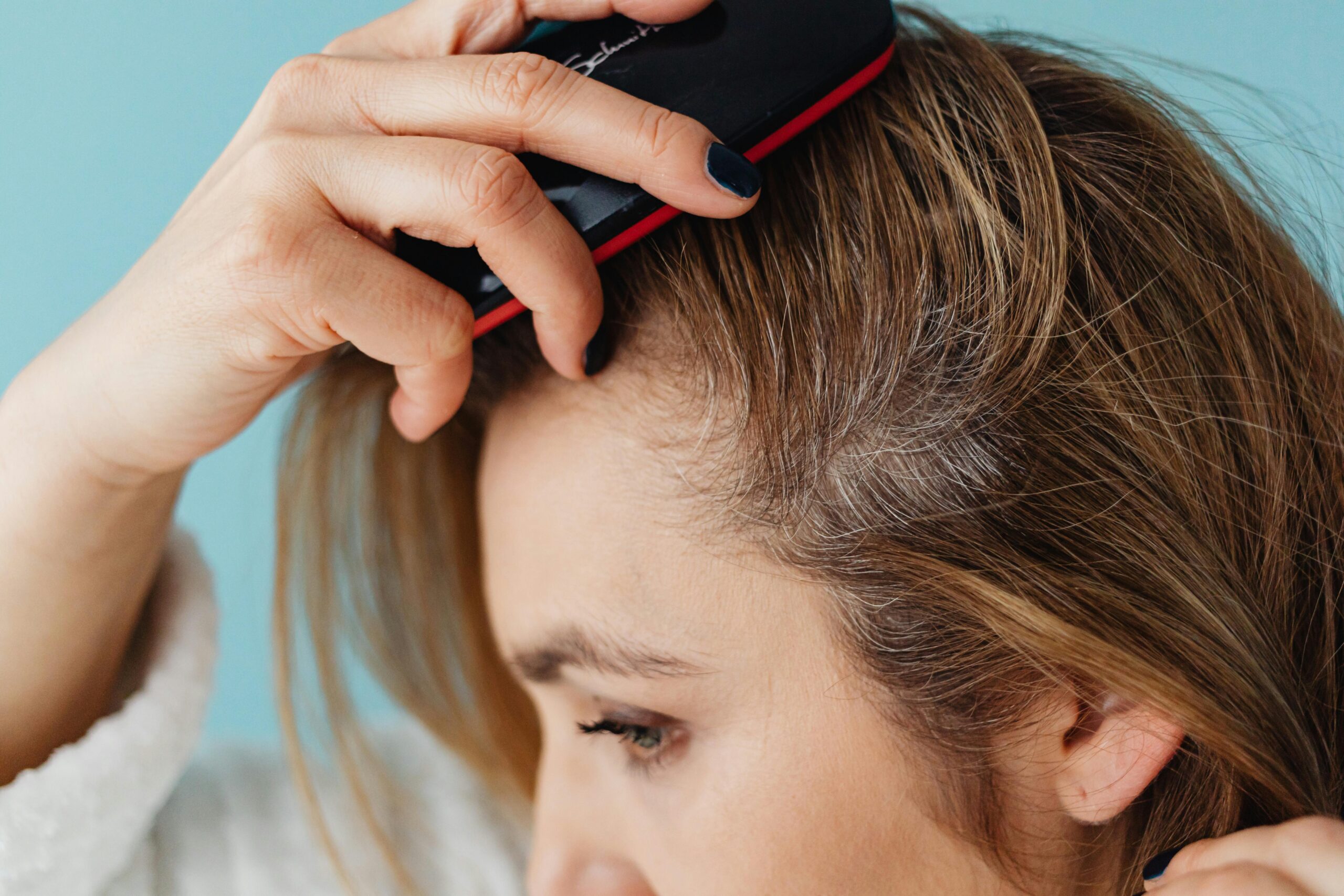Scalp fungus is a common issue that can lead to itching, flaking, redness, and even hair thinning if left untreated. Caused by fungal infections such as ringworm or yeast overgrowth, it can disrupt the health of your scalp and hair. Fortunately, there are several remedies to alleviate discomfort, reduce fungal growth, and restore your scalp’s natural balance. This guide explores effective treatments to soothe irritation and encourage healing.
What is Scalp Fungus?
Scalp fungus occurs when fungi, such as dermatophytes or Malassezia, grow excessively on the scalp. These fungi thrive in warm, moist environments, often resulting from poor scalp hygiene, excessive oil buildup, or sharing personal items like brushes or hats.
Symptoms of scalp fungus include:
- Persistent itching.
- Flaky or scaly patches.
- Redness or swelling.
- Hair thinning or breakage.
If you suspect a fungal infection, it’s important to address it promptly to avoid worsening symptoms.
Natural Remedies for Scalp Fungus
Natural remedies can help alleviate symptoms and restore scalp health without harsh chemicals. Below are some effective options.
1. Tea Tree Oil
Tea tree oil has potent antifungal and antimicrobial properties. It can combat fungal infections while reducing itching and inflammation.
How to Use:
- Dilute a few drops of tea tree oil in a carrier oil like coconut or olive oil.
- Massage it into your scalp and leave it on for 30 minutes before rinsing.
- Use 2-3 times a week for best results.
2. Apple Cider Vinegar (ACV)
Apple cider vinegar balances the scalp’s pH and inhibits fungal growth. It also helps remove excess oil and product buildup.
How to Use:
- Mix equal parts of ACV and water.
- Apply the mixture to your scalp using a cotton ball or spray bottle.
- Leave it on for 15 minutes, then rinse with lukewarm water.
- Use this remedy 2-3 times a week.
3. Aloe Vera
Aloe vera soothes irritated skin and has antifungal properties that can help treat scalp infections.
How to Use:
- Extract fresh aloe vera gel and apply it directly to your scalp.
- Leave it on for 30 minutes before washing it off with a mild shampoo.
- Repeat daily until symptoms improve.
4. Garlic
Garlic contains allicin, a compound with antifungal and antimicrobial effects. It can effectively combat scalp fungus when used correctly.
How to Use:
- Crush 2-3 garlic cloves and mix them with coconut oil.
- Heat the mixture slightly and let it cool.
- Apply it to your scalp, leave it on for 20 minutes, and then rinse thoroughly.
5. Coconut Oil
Coconut oil’s lauric acid content makes it a natural antifungal agent. It also moisturizes and soothes the scalp.
How to Use:
- Warm up some coconut oil and massage it into your scalp.
- Leave it on overnight and wash it off with a gentle shampoo the next morning.
- Use 2-3 times a week.
Over-the-Counter Treatments
For more persistent scalp fungal infections, over-the-counter products can be effective.
Antifungal Shampoos
Shampoos containing ketoconazole, selenium sulfide, or zinc pyrithione are designed to treat fungal infections. They help reduce fungal growth and alleviate symptoms.
How to Use:
- Follow the instructions on the product label.
- Use the shampoo consistently, usually 2-3 times a week.
Topical Antifungal Creams
Topical creams or ointments containing clotrimazole or miconazole can treat small, localized infections. These products are easy to apply and effective for mild cases.
Lifestyle Changes to Prevent Scalp Fungus
Preventing scalp fungus involves maintaining a clean, healthy environment for your scalp.
- Wash your hair regularly to remove excess oil and dirt.
- Avoid sharing personal items like combs, towels, or hats.
- Dry your hair thoroughly after washing to prevent moisture buildup.
- Choose breathable hairstyles to minimize sweat and oil accumulation.
Incorporating these habits into your routine can reduce the risk of recurring infections.
Conclusion
Scalp fungus can be uncomfortable and affect your confidence, but it’s manageable with the right remedies and preventive measures. Natural treatments like tea tree oil, apple cider vinegar, and aloe vera can soothe irritation and promote healing, while antifungal shampoos and creams tackle more severe cases. Consistent care and a healthy scalp routine are key to preventing future issues.
Frequently Asked Questions (FAQs)
1. Can scalp fungus go away on its own?
In some cases, mild scalp fungus may resolve naturally, but it’s better to use remedies or treatments to speed up healing and prevent complications.
2. How long does it take to see results from natural remedies?
Results vary depending on the severity of the infection. Most people notice improvement within 1-2 weeks of consistent use.
3. Are natural remedies safe for everyone?
While natural remedies are generally safe, it’s best to do a patch test before use to check for allergic reactions. Consult a dermatologist if you have sensitive skin.
4. When should I see a doctor for scalp fungus?
If symptoms persist or worsen after trying home remedies and over-the-counter treatments, consult a dermatologist for professional care.
5. Can scalp fungus cause hair loss?
Yes, severe scalp fungal infections can lead to hair thinning or temporary hair loss. Treating the infection promptly can help prevent further damage.



